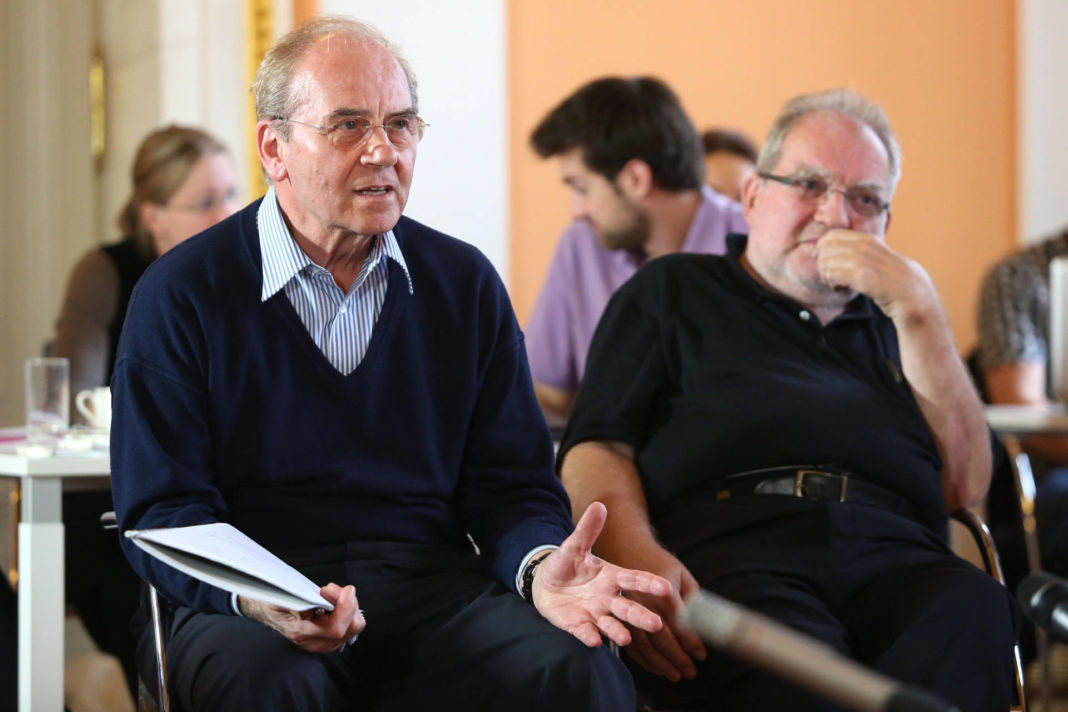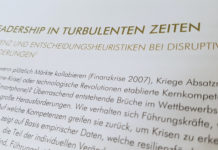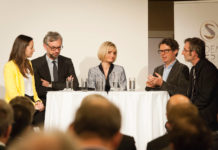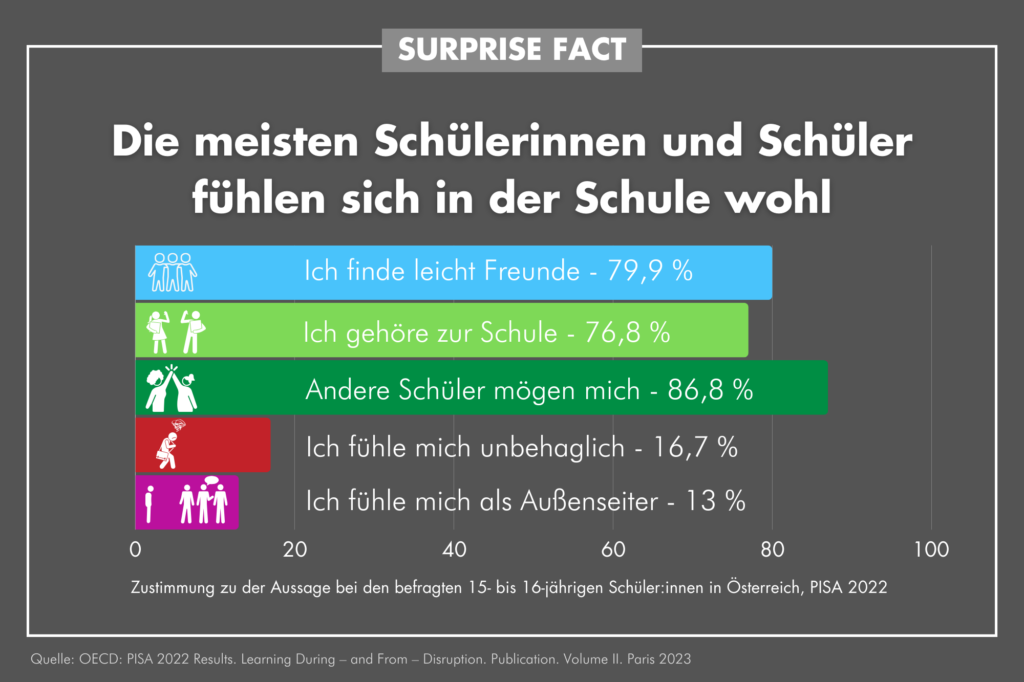The main topic of this year’s symposium, „Beyond borders,“ may affect all aspects of life. The world is experiencing an unprecedented period of global peace today. The threats of our time are not wars but terrorist attacks, climate change, political upheaval, or energy shortages, to name just a few. How can we deal with crises and borderline experiences and which strategies can we develop to handle them? These questions were discussed from the point of view of mathematics, extreme sports, politics and the treatment of future scenarios in film and literature.
One of the most fascinating topics is the predictability of crises. John Casti has worked on the modelling of so-called X‑events for many years. X‑events occur surprisingly and rarely but have a great impact. They have a destructive effect on the status quo and they precipitate change. Thus, X‑events trigger progress. The prediction of X‑events is only possible to a very limited extent. However, forecasts might further our understanding of X‑events decisively. Nevertheless, they are very difficult to make because the context in which such X‑events occur is changing constantly.
The discussion highlighted events like political revolutions, financial crises and terrorist attacks with a global effect. It focused on three main problems: How do you survive an X‑event? How do you respond to it? And finally, how can a society prepare for it?
A society has to be adequately prepared and ready to take great risks after an X‑event in order to re-organise for the future. One prerequisite for dealing with a crisis is the trust of the citizens in institutions and the transparency of political decision-making processes. Smaller structural units that are manageable and transparent have great advantages in this respect.
The experience of borderline situations and the way to deal with them on an individual level were discussed impressively by mountaineer Peter Habeler. The principles and basic rules of extreme sports can be applied to many other fields, e.g. economy and politics.
To develop your own personality in borderline experiences of this kind is to acknowledge your physical and mental limits. We used the term „comfort zone“, which one has to leave in order to be ready for new experiences. A high degree of self-confidence is necessary in a crisis to bear the responsibility for your own decisions. Only then is it possible to approach new frontiers. It is equally important to recognize these limits and to be willing to turn back or to give up if the risk becomes too great. More specifically, the lack of risk-taking on the part of politicians, administrators and leaders in many economic fields was discussed. Fewer and fewer people are prepared to bear the consequences of courageous measures.
Is it possible to prepare people for impending crises and which mechanisms are available for this purpose? How does the general public assess the various scenarios for our future? Post-apocalyptic scenarios are often to be found in books and films. Eva Horn has shown that fiction dealing with specific disasters or crises can make it possible to assess the consequences if one of those scenarios were to become reality. Fiction can also be used as a basis for discussing ethical conflicts: Are we willing to apply ethical principles when helping others during a catastrophe? Fiction can also help to develop strategies for survival.
Disaster fiction mirrors the worst fears of the respective era. However, especially in computer games there is a trend toward cooperation between players. Fictional heroes prefer cooperation to selfishness, i.e. they show how we can cooperate in a situation in which selfishness would probably be our instinctive reaction.
The crisis-proneness of European politics was discussed by Karel Schwarzenberg. The main symptom of the crisis is evidenced by the decline of the major democratic parties that were established about 100 years ago. The support for Social Democratic and Christian Social parties is dwindling in all countries and new, partly nationalist, partly populist parties emerge. The major weakness of the „old“ parties is their lack of principles and ideas. They no longer know what exactly they are standing for. Parties as well as politicians have become interchangeable. In addition, there is a crisis of the „idea“ of Europe. The bureaucracy in Brussels has lost touch with the citizens, leading to a so-called „Europe frustration“. Especially in situations such as the current crisis in the Ukraine, a high level of trust in institutions and structures would be necessary but is not discernible. Europe seems hamstrung without a common foreign policy and a common defense strategy.
In this time of European weakness and in the absence of real leaders there is an increasing danger of a call for a „strongman.“ The election results of new populist parties have steadily improved over the past years. In recent decades Europe has focused solely on boosting its economy and has achieved an unprecedented prosperity for the majority of its citizens. Despite its prosperity, Europe is falling back in innovative strength because not enough money is being spent on schools and universities. As a consequence, Europe has become a „patent-importer“. It is a fundamental threat to the future of Europe if, in addition to its strategic weakness, there is also an innovation weakness. If this happens, our good economic position is lost. Europe must not become Asia’s tourism peninsula.
The discussion on Sunday with Governor Josef Pühringer and ACADEMIA SUPERIOR’s president Michael Strugl, members of Young Academia and the Academic Board marked the transition from an academic discussion to political practice.
The students raised critical questions concerning the future. The issues addressed included ageing, the financial viability of the welfare state, the further development of environmentally sustainable mobility in Upper Austria’s regions, the opportunities and risks of new technologies, especially bio-technology, and the advancement of democracy, especially direct democracy.
A concern highlighted by the young people is the resilience of society. Here, one key aspect is the situation of our education system. Only if young people receive a good education will they be able to develop the right ideas to deal with future borderline experiences.
Personal Data:
Erich Gornik is Professor of Solid State Electronics at the Vienna University of Technolog, Winner of the 1997 Wittgenstein Award and since 1995 Fellow of the American Physical Society.







